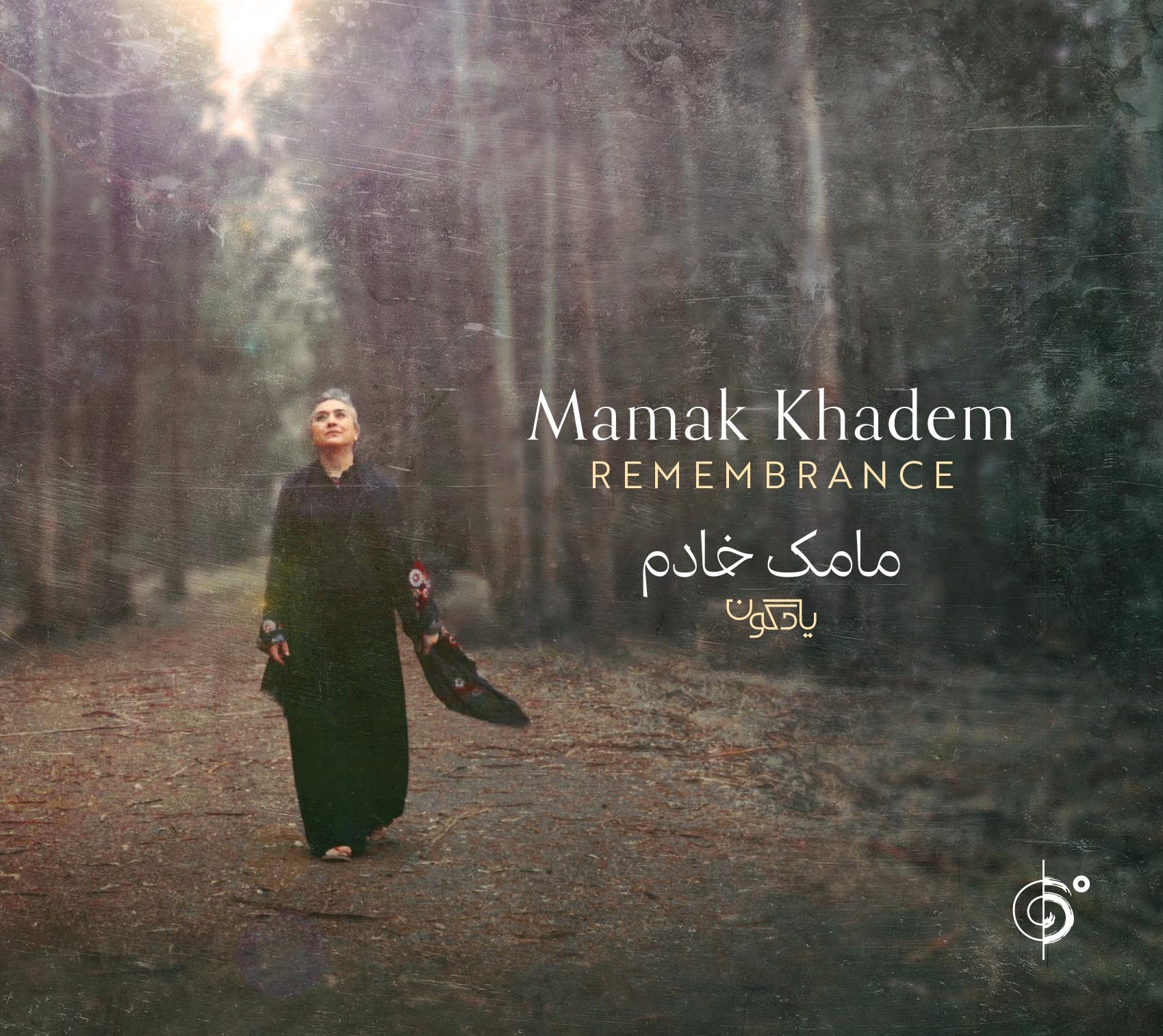Remembrance
REMEMBRANCE is a powerfully deep and loving tribute to Mamak's late father. It was created in the isolation of her Santa Monica home during the COVID pandemic as he lived out his final days back in Iran; due to travel restrictions she was unable to be with him for the last time. With eight elegant and moving original songs, Khadem has captured a universal sense of beauty, love, separation, and loss.
In the album's liner notes, she states, “REMEMBRANCE is a musical journey to healing the huge loss of my beloved father. After his passing during the global pandemic in 2020, my grief could no longer be for him alone, but for all of those we lost. Being unable to be by his side was profoundly difficult – yet, for so many immigrants in our world, life itself is like an infinity of limitations. Knowing in my heart that my father knew how much I loved him gives me a sense of completion and peace. He is with me now wherever I go. I dedicate this work to his beautiful soul.”
Guest appearances by singer-pianist Chris Martin (of Coldplay), the venerable Rumi scholar and translator Coleman Barks, and a children's choir enhance poignantly emotional songs. Khadem's lyrics, sung in Farsi, draw from the verse of the esteemed 13th century poet Moulana Jalaledin Rumi, as well as other great Persian poets including Saied Soltanpour and Fatemeh Baraghani. One song, Face to Face, was inspired by an old Armenian folk melody.
REMEMBRANCE is Khadem's fourth album, and was co-written and co-produced with collaborators Jamshied Sharifi, Marc Copely, and Chris Votek, all of whom also contributed instrumentation along with other wonderful musicians.
The album comes on the heels of two critically acclaimed singles, both accompanied by stunningly surreal music videos directed by the award-winning Iranian cinematographer Sam Javadi. The most recent single, Entangled, was hailed by Rolling Stone India: “The seasoned singer delivers undulating vocals over hair-raising string arrangements. Featuring a mournful, equally eerie music video ‘addressing women in today’s world from an alarmed feminist perspective.’”
The previous single Across the Oceans (featuring guest appearances by Chris Martin (Coldplay) and Rumi translator Coleman Barks) was similarly praised; Popmatters wrote “Iranian-American artist and social activist Mamak Khadem is regarded as an establishment of world trance music. With roots sewn from Tehran to Los Angeles and beyond, she is also considered a true nomad both musically and geographically. Her new single, Across the Oceans pays homage to these roots, inspired by Khadem’s work with refugee camps. There, she plays music and hosts workshops for underprivileged youth, encouraging children to find inspiration and strength in music.”
She elaborates, "The songs in this album are expressing grief over the execution of political prisoners, losing friends to COVID, losing an internationally acclaimed Persian classical singer, and most significantly losing my beloved father. This album -- so unlike my last one, which was a musical journey of sharing joy with other cultures -- is my reaching into a deeper level of myself to express my pain and sorrow through this music."
Some of the album's songs have specific back stories, and Khadem describes a few. "Mina is based on the poetry of the late Iranian poet and playwright Saied Soltanpour, who was executed in 1981. So many young people have been jailed and executed for their pursuit of justice for their people."
"The song Messenger honors the memory of Ostad (master) Mohammad Reza Shajarian (1940-2020). He was considered Iran’s greatest living master of traditional Persian music and had enormous impact in introducing the traditional repertoire to so many singers."
With Face to Face, Khadem honors Fatemeh Baraghani -- aka Táhereh Qurrat al-'Ayn (meaning "The Pure One") -- an influential 19th century poet, women's rights activist, and theologian who was executed for her Bábi (Baha'i) faith and her unveiling. The lyrics of the song are Táhereh's own words, speaking to us across time.
But the central inspiration of REMEMBRANCE is to celebrate Mohsen Khadem, Mamak's late father. In song after moving song, she blends her expressive, commanding vocals with an eclectic instrumental palette ranging from the Western sounds of harmonica and guitar on the opening title track (one of several co-produced by multi-instrumentalist Marc Copely, who contributes guitar, bass, and mandolin on the album) to cello, violin, viola, harp, keyboards, percussion, and various traditional instruments, e.g., duduk, darbuka, daf, kamancheh, the Asian guzheng, and the distinctive bagpipe from southeastern Europe called the gaida.
The impeccable instrumental performances frame the central instrument with perfection: Mamak Khadem's incredible, masterful voice -- its power, range, and nuance propelling every track with nothing short of sublimely subtle pyrotechnics and heartfelt passion.

